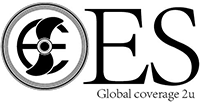What courier can be sent to Malaysia?

Malaysia is one of the Southeast Asian countries. It is divided into two parts by the South China Sea. It is located in West Malaysia on the Malay Peninsula. It is connected to Thailand in the north and Johor Strait in the south. To the north of Borneo (Kalimantan), Indonesia is connected to the south, and Brunei is sandwiched between Sabah and Sarawak. In 2016, the trade volume between Malaysia and China increased by 44.4% from the previous year to MYR 240.9 billion (about 54.3 billion U.S. dollars). China has become Malaysia's largest trading partner for the eighth consecutive year since 2009.
OES is such a pioneer who is deeply rooted in the international logistics industry, focusing on Malaysia's logistics supply chain channels, integrating global resources, smelting business wisdom, and providing Malaysians in Malaysia with the most convenient and fast one-stop Malaysian logistics air shipping supply chain channels.
Express delivery to Malaysia:
International Express: DHL International Express, EMS International Express, UPS International Express, TNT International Express, FedEx International Express,OES International Express
International mail: China Post, Hongkong Post, Swiss Post
Delivery time to Malaysia:
International Express: 3-5 working days
International mail: 7-20 working days
Express to Malaysia Price:
Different delivery methods have different prices. International express delivery is fast but the price is slightly higher, but the larger the volume, the cheaper the unit price. International mail is cheaper but takes slightly longer to deliver. Please use the international express price inquiry function or consult online customer service for the express delivery to Malaysia prices for each shipping method.
Malaysia bans the import of proprietary Chinese medicines containing borneol and aconite components, 45 plant medicines and 13 animal and mineral medicines.
The main imports of Malaysia are divided into three categories. The first category is raw materials and means of production, including electronic components, textiles, plastics, machine parts, petroleum, fertilizers, pesticides and food, accounting for 42.6% of the total imports. The category is machinery and equipment, including metal products, machinery transportation equipment, electronic instruments, heavy machinery and telecommunications equipment, accounting for 34.5% of total imports; the third category is daily necessities, including motorcycles, bicycles, jewelry and food, which together account for 21.9% of total imports. Malaysian imports are subject to a 5% surcharge based on the CIF value. Some basic goods such as fish, cereals, salt, petroleum products, rubber, paper and printed matter are exempt from additional taxes. Consumption taxes on beer, alcohol and other beverages, tobacco, gasoline, mineral oil and sugar, tires, playing cards, air conditioners, batteries, television receivers, motor vehicles and motorcycles, matches, etc. are levied on ad valorem or ad valorem basis.
99.3% of Malaysian tariff is ad valorem duty, 0.7% is specific duty, mixed duty and option duty. In 2005, the simple average tariff rate of Malaysia's most-favoured-nation tariff was about 8.1%.
Malaysia import document:
(1) Commercial invoice. The original invoice used to calculate the tariff requires that the name be completed and signed in English. The invoice must include the following items: mark, number, quantity and type of package, detailed product name, non-technical name or internal label code, gross and net weight, FOB, CIF fee, and CIF price (if it is a different customs tariff item, Each item must also be specified separately at the CIF price), place of shipment, and country of origin. The product description on the package must be the same as the invoice, and the invoice must be in triplicate.
(2) Certificate of origin. Certificates of origin apply only to goods from federal countries.
(3) Bill of lading. Notarization is not required for ocean bills of lading. The use of an instruction bill of lading is permitted, provided that the address of a notified person is stated.
Malaysia national special requirements: New regulations on wooden packaging materials. From July 1, 2010, wooden packaging for all imported goods in Malaysia must be heat treated and marked or smoked and certified. And there must be relevant instructions for wooden packaging materials on the invoice and packing list. The sender must indicate the type of packaging material on the relevant electronic or manual customs declaration form.
Any non-conforming goods received by UPS will be placed in the destination country. Managed by local customs authorities.
For DHL shipments to Malaysia, the following customs clearance documents are required:
a. The invoice must contain all the detailed and correct information of the delivered goods, including: product quantity, description of the product name (materials and uses), import and export reasons, weight and declared value, etc .;
B. The waybill must contain all the information of the shipment, including: the contact details of the recipient, the declared value, the product name, etc .;
C. Recipients need to provide relevant import licenses for specific products.
